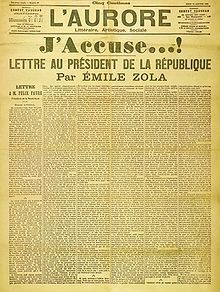“Punting the Pundits” is an Open Thread. It is a selection of editorials and opinions from around the news medium and the internet blogs. The intent is to provide a forum for your reactions and opinions, not just to the opinions presented, but to what ever you find important.
Thanks to ek hornbeck, click on the link and you can access all the past “Punting the Pundits”.
Robert Sheer: Perps in the White House
While it is widely recognized that the banking meltdown has left enormous economic pain and political upheaval in its wake, it is amazing that the folks who created this mess are rewarded with ever more important positions in our government. Yet the recent appointments of Gene Sperling and William Daley, key Wall Street-connected perps of this crisis, to the most critical positions in the Obama White House have not generated much controversy.
The justification for the media’s indifference appears to be that the new appointees can hardly be worse than the hustlers they replaced. From its beginning, the Obama administration has been flooded with veterans of the Clinton White House who pushed through the radical deregulation that Wall Street had long sought and were rewarded with fat fees from the big banks when they left government.
Nancy Goldstein: Will Bush’s Torture Memo Team Face Justice in Spain?
There may yet be justice for the victims of the post-9/11 US torture program. Just not in the United States.
Here, our previous president is enjoying terrific sales for a memoir where he boasts about having authorized waterboarding. The current administration’s commitment to “moving past” the illegalities incurred on its predecessor’s watch is so hardcore that the Department of Justice decided late last year against prosecuting anyone from the CIA for destroying ninety-two videotapes that showed the torture of prisoners detained as suspected terrorists. Which leaves Attorney General Eric Holder more time to subpoena Twitter records and figure out how to criminalize Julian Assange and WikiLeaks for promoting government transparency.
But perhaps there will be justice in Spain. This past Friday, the Center for Constitutional Rights filed papers urging Judge Eloy Velasco to do what the United States will not: prosecute the “Bush Six,” the group of senior Bush-era government lawyers led by then-Attorney General Alberto Gonzalez, for violating international law by creating a legal framework that aided and abetted the torture of suspected terrorists.
Leonard Pitts Jr: Censoring N-word in Mark Twain’s ‘Huck Finn’ is ridiculous
. . . . . (It) is troubling to think the state of reading comprehension in this country has become this wretched, that we have tweeted, PlayStationed and Fox Newsed so much of our intellectual capacity away that not only can our children not divine the nuances of a masterpiece, but that we will now protect them from having to even try.
Huck Finn is a funny, subversive story about a runaway white boy who comes to locate the humanity in a runaway black man and, in the process, vindicates his own. It has always, until now, been regarded as a timeless tale.
But that was before America became an intellectual backwater that would deem it necessary to censor its most celebrated author.
The one consolation is that somewhere, Mark Twain is laughing his head off.

 On this day in 1898, French writer
On this day in 1898, French writer  On this day in 1932,
On this day in 1932,  On January 11, 1908, U.S. President Theodore Roosevelt
On January 11, 1908, U.S. President Theodore Roosevelt 
 On this day in 1901,
On this day in 1901, 

Recent Comments